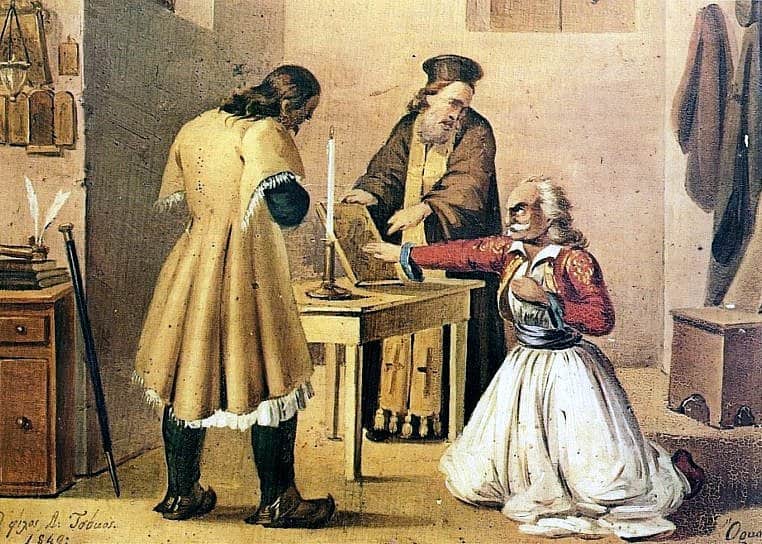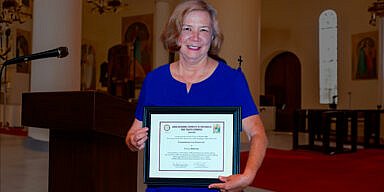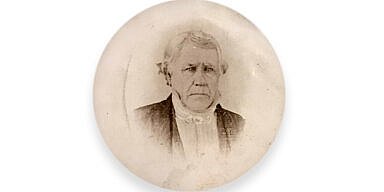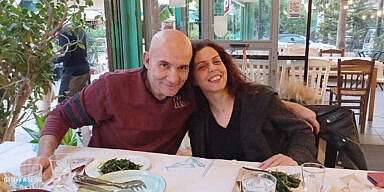My late father always wanted to go to Odessa. A proud Hydriot, every port had a visceral, nostalgic resonance to him. It reminded him of younger days and open horizons, sailing, like his ancestors before him, the open seas in search of fortune and, more importantly, agency.
The never-visited Odessa had all of this and more. It was here, of course, that the Philike Etairia was founded in 1814 by three regular guys, Greeks employed in various capacities in the southern Russian (now Ukrainian) boomtown. The port was new, built on a coast recently liberated by the Russians from the Turks. The 1700s were a period of Reconquista in Central Europe and the Black Sea region, as Austrians and Russians, at the head of multinational armies, pushed the Turk out of these lands. Fertile lands in Hungary and Ukraine had lain fallow due to the ravages of war, and now both Habsburg and Romanov sought to capitalize on peace dividends.
In a corner of the Adriatic, the Austrians developed Trieste. Here on the Black Sea coast, a port named after the Ancient Greek port of Odessos was founded. Tsarina Catherine the Great figured that a city founded by a woman should take on a feminized version of the name. Hence, Odessa.
Just as the Russians sought their Balkan coreligionists to fight for them in the wars against the Turks, so too did they encourage their commercial and maritime skills. As in Trieste, Greeks (and Serbs) settled and set their commercial skills to work for trade. Odessa particularly became important for the growing Greek fleet, particularly ships from my island, Hydra, which carried the bounty of the Ukrainian plains to ports in Spain, France, and further afield. Russian grain was the foundation of many a Hydriot fortune and indirectly contributed to Greek independence as demand increased the size of the Greek island fleet, as well as their financial power.
The Greeks of Odessa involved themselves in more activities in commerce. As in Trieste, Vienna, Marseilles and elsewhere, the Greeks began to ask why they could not “import” independence back to Greece. Commerce and ideas often flow together and foster one another.
And so, in 1814, three Greeks in Odessa, Nikolaos Skoufas, Athanasios Tsakalov, Emanouil Xanthos founded the Philike Etairia, a society modeled on similar secret organizations in Europe. Inspired by Freemason rituals, the goal of the Society was to gain independence for Greece via armed struggle. These three men were not grandees but rather poorer members of the middle class. It is a reminder that most national revolutions are started and fought by the middle classes, even as the wealthy eventually pile in. This was also the case in the American Revolution.
Membership in the Etairia grew slowly, but as 1821 approached, members were to be found throughout the Greek areas of the Ottoman Empire, in major centers of the Greek Diaspora, and among other Orthodox nationalities, such as Tudor Vladimirescu of Romania or the Serbian Kara George Petrovic, founder of the Karageorgevic dynasty. These three minor merchants fulfilled the dying promise of Rhigas Pheraios, the first martyr of the Greek Revolution, who cried out, “I have sown a rich seed which others will reap.”
Today Odessa is no longer the vibrant hub it used to be. Like Trieste, it has slumbered into a quiet decay in the shadow of its ornate buildings recalling a grander time. In contrast to Trieste, situated in the embrace of wealthy northern Italy, Austria, and Slovenia, Odessa belongs to Ukraine, which is both economically and institutionally poor. On a quiet side street, a building with a Greek flag marks the house where the Philike Etairia was founded. One of my late father’s wishes was to make a pilgrimage to visit this place. Perhaps the son will do so, to honor both his father and those regular guys who made possible the Bicentennial of Greek Independence which we will soon celebrate.
Honor is due.




